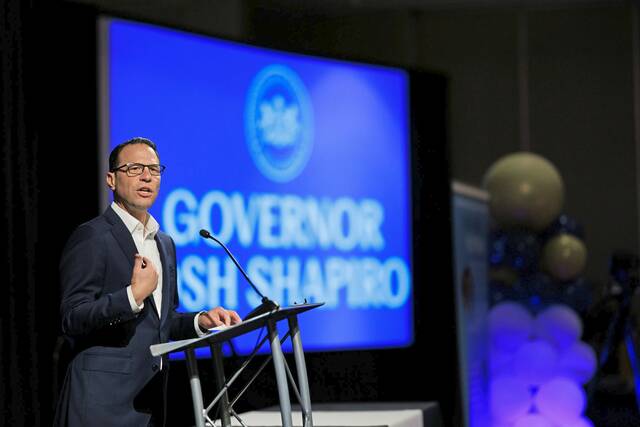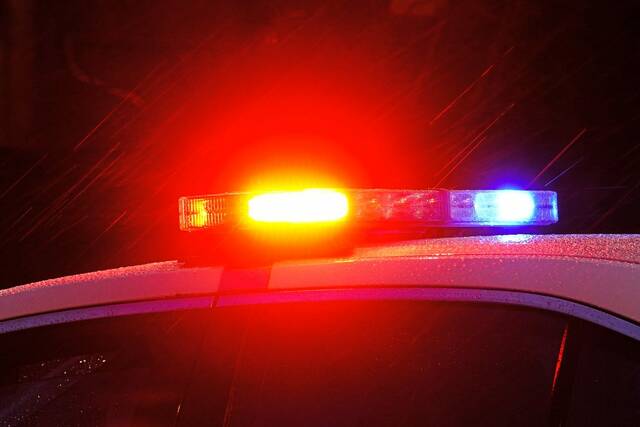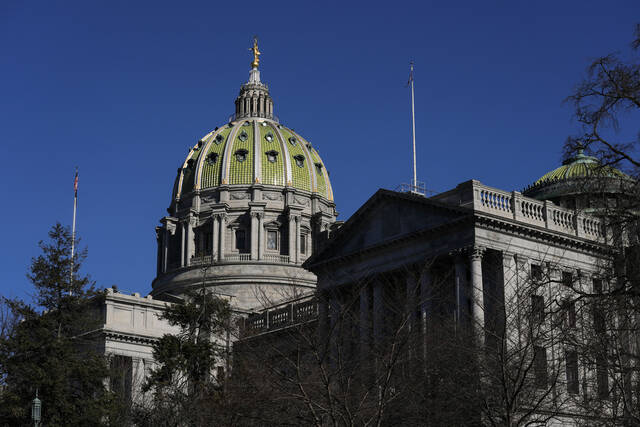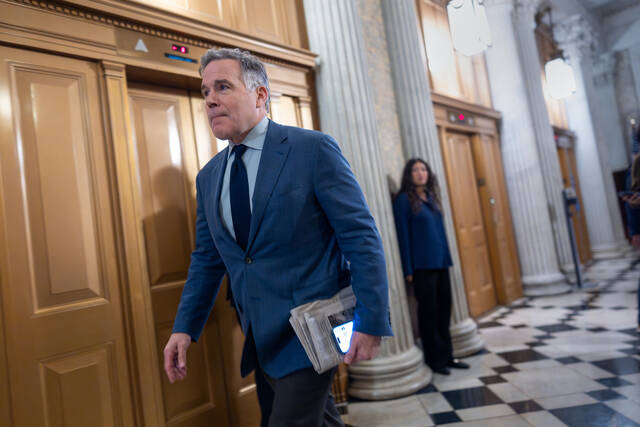Pennsylvania’s rank-and-file lawmakers could see their salaries rise above $100,000 in December, but some members are seeking legislation to freeze or eliminate the automatic pay raises they receive.
House State Government Committee Chairman Seth Grove, R-York County, said he supports a pay freeze to ensure — at least this year — that all 253 lawmakers do not join the ranks of the more than 11,800 state government employees who had six-figure earnings in 2021.
In speaking to the Pennsylvania Press Club on Monday, Grove pointed out his committee voted unanimously last year on a bill offered by retiring Rep. Frank Ryan, R-Lebanon County, that would suspend through the end of this year the automatic pay raise tied to inflation that lawmakers as well as top executive branch officials and judges would receive.
That bill now awaits action by the full House.
“I thought it was the right thing and still think it was the right to do at the time,” Grove said to the audience at the Harrisburg Hilton. “Actually, at the time, I didn’t think the legislature would hit above $100,000. I thought inflation would be much lower. But it’s cause and effect.”
According to the U.S. Bureau of Labor Statistics, the year-over-year increase in the Consumer Price Index for the Mid-Atlantic Region as of June was 8.8%. That is the measuring stick identified in a 1995 law that is used to determine state officials’ pay increases.
An increase of that size would push the rank-and-file lawmaker’s salary to $103,830 from the current $95,432. Legislative leaders earn more. This year, lawmakers received the biggest pay increase in a quarter century when their annual salary rose by $5,000.
If there is no change or a negative change in the CPI, the pay these government officials receive remains the same. Since the law’s enactment, that has happened only three times — in 2010, 2016, and 2021, with the latter one being the result of legislation ordering a pay freeze.
In the Senate, a bill offered by Sen. Doug Mastriano, R-Franklin County, who is the GOP gubernatorial candidate, offered legislation to eliminate the automatic pay increases. It has sat idle in the Senate State Government Committee since January.
Grove’s address Monday hit on a a number of his committee’s actions particularly as it relates to elections but also spoke on several hot button election topics:
Moving up presidential primary: Grove voiced enthusiasm for Senate Bill 428 that moves Pennsylvania’s primary in presidential election years to the third Tuesday in March instead of the fourth Tuesday in April, when it traditionally has been held. The bill, sponsored by Sen. John Gordner, R-Columbia County, won passage in the Senate by a 49-0 vote as well as in House State Government Committee by a 16-8 vote. It now awaits action by the full House.
Considering that those elections are for nominating a candidate to represent their political party and Pennsylvania being a swing state, Grove said, “Moving that up I think would be a huge benefit to increase turnout, increase some excitement in a presidential election year.”
But a problem that some lawmakers see in making that change is it moves up the timeframe to collect signatures for nominating petitions into the holiday season.
Open primaries: Grove said the hearing the House State Government Committee held last week on open primaries was informative.
“Across the board people like it or don’t like it,” he said. “But I think having [the National Conference of State Legislatures] there providing some background on how other states do it got some members thinking about it in a much different light than what’s primarily been happening,” he said.
Giving counties the two election-related changes they seek: Grove said making these changes won’t solve all of the Pennsylvania’s election woes but it would be helpful.
County commissioners want lawmakers to change the law to allow earlier processing of mail-in ballots and move up the deadline for mail-in ballots applications. Both changes would give election officials more time to do the work that currently is limited by law. The pre-canvassing of ballots now can’t begin until 7 a.m. on Election Day and voters currently have up until 7 days before the election to request a mail-in ballot.
He said some other changes are needed on the front-end of the pre-canvassing process because once the outside envelope of a ballot is removed, gone is the ability to question anything about it.
“So if the governor’s interested in pre-canvassing, you have to have conversations about election integrity and the mail-in voting system and I think you’ll get movement on that,” he said.
Electing a Secretary of State: Twenty-seven states elect the individual who oversees elections but in Pennsylvania governors appoint the secretary of state as they do other Cabinet officers.
While Grove said he doesn’t know if it would help or not to have the secretary of state as an elective post, his further response suggests he sees value in making it an elected position.
“I think from a perspective of Pennsylvanians to build back trust, having that person accountable to elected officials or to the voters ultimately, I think will provide a level of accountability instead of having a gubernatorial appointee,” he said.








